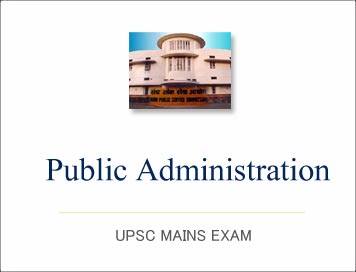Public Administration Mains 2023 : Solved Paper-2 (Question: 8)

Public Administration Mains 2023 : Solved Paper Question Paper-2 (Question-8)
Section B
- Exam Name: UPSC IAS Mains Public Administration (Paper-II)
- Year : 2023
- Marks: 250
- Time Allowed: 3 Hoursa
8.(a) In the context of the Second Administrative Reforms Commission recommendations, evaluate Public-Private Partnership (PPP) as a preferred mode of implementing infrastructural projects.20
The Second Administrative Reforms Commission (ARC) was set up by the Government of India in 2005 to review the public administration system and suggest measures for improvement. Some of the key recommendations of the Second ARC on PPP are:
• The Government should adopt a comprehensive PPP policy that defines the objectives, scope, principles, and modalities of PPP, and provides a framework for project identification, appraisal, approval, procurement, implementation, and monitoring.
• The Government should establish a PPP Appraisal Committee at the central level, and similar bodies at the state and local levels, to screen and approve PPP projects, based on technical, financial, economic, social, and environmental criteria.
• The Government should create a PPP Fund to provide viability gap funding, contingent support, and other forms of assistance to PPP projects, and ensure that such support is transparent, competitive, and performance-based.
• The Government should develop standard bidding documents, model concession agreements, and guidelines for PPP contracts, and ensure that the contracts are fair, balanced, and enforceable.
• The Government should strengthen the capacity of public officials and institutions involved in PPP, and provide training, guidance, and technical assistance to them.
• The Government should promote public awareness and participation in PPP projects, and ensure that the stakeholders, especially the users and the affected communities, are consulted and informed throughout the project cycle.
• The Government should ensure that PPP projects are subject to regular audit, evaluation, and disclosure, and that there are effective mechanisms for dispute resolution and grievance redressal.
However, PPP also faces some challenges and limitations, such as:
• PPP requires a robust legal and regulatory framework, a clear and consistent policy environment, and a strong institutional capacity to plan, procure, and monitor PPP projects.
• PPP involves complex and lengthy processes, high transaction costs, and uncertain outcomes, which may deter potential private partners or increase their risk premiums.
• PPP may entail social and environmental impacts, such as tariff adjustments, land acquisition, resettlement, and environmental safeguards, which need to be carefully assessed and addressed.
• PPP may pose governance and accountability challenges, such as corruption, rent-seeking, and lack of transparency, which need to be prevented and mitigated.
(b) In 2011, India ratified the United Nations Convention Against Corruption (UNCAC). Evaluate the existing legal framework for fulfilling this commitment. 20
ANSWER: ONLY FOR COURSE MEMBERS
(c) Shyama Prasad Mukherji Urban Mission is a cluster-based approach of converging rural development efforts of different departments of the government. Comment. 10
ANSWER: ONLY FOR COURSE MEMBERS
